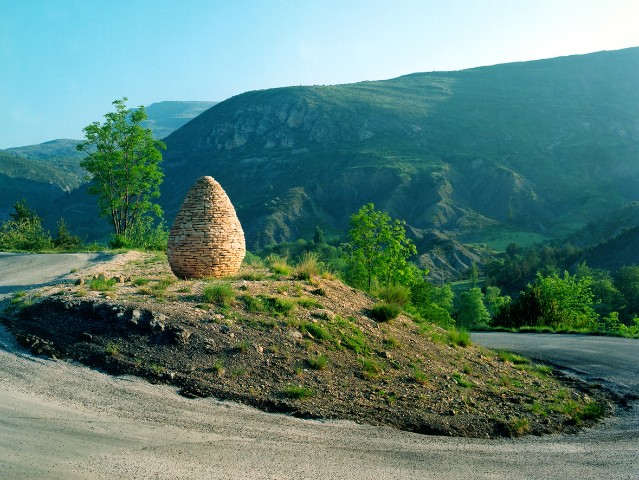Over the last two decades, ecological themes and environmental issues have become increasingly important in all areas of artistic creation, as demonstrated, for example, by the latest edition of "La littorale", the Anglet contemporary art biennal (August 7 - October 31, 2021). In parallel to the collective awareness of the extent of the contemporary ecological crisis, human and social sciences have been led to rethink the relationship between human beings and their environment, and to take the measure of the epistemological, political, social and aesthetic disruptions involved. New disciplines have emerged, such as environmental aesthetics, history and sociology, anthropology of nature, ecosophy, human ecology and eco-criticism.
The intensive training proposed by the thematic school "Arts, environment and ecology" will aim the evaluation of the theoretical advances made in these various disciplinary fields, and their relevance in the elaboration of new tools of analysis and interpretative models for ecological artistic proposals. But it will also take into account the singularity of cultural and artistic initiatives developed, on a local level, by institutions, collectives, associations involved in the defense of the environment and in the promotion of ecological arts.
PROGRAM
|
|
Matin
|
Après-midi
|
|---|
|
Lundi 17/10
|
|
17h30 «Towards a second life» Artistic exhibition opening (artistic recycling practices)
|
|---|
|
Mardi 18/10
|
9h-13h - Introduction Sabine Forero M.
Carmelina Concilio Cristina Daju
Questioning ecological art – Myriam Métayer (U. Bordeaux-Montaigne, online) :
« L’anthropocène: une notion pour repenser le temps en histoire de l’art ? » [The Anthropocene: a concept to rethink time in Art History]
– Jan van Boeckel (Hanze U., Groningen, NL): “Art and sustainability” – Sabine Forero
“A. Goldsworthy and Nils Udo: Working in and with Nature. Towards a new artistic paradigm?”
|
14h30-18h30 Intensive and participatory art workshop (textile practices)
19h « Xavier Dumoulin : Tropiques des Pyrénées » Artistic exhibition opening, Le Bel ordinaire, espace d’art contemporain, Billère
|
|---|
|
Mercredi 19/10
|
9h-13h At the crossroads between art, sciences, communication, and social work
– Carmen Marin Ruiz and Susana Jodra (UPV, Visual Arts Faculty, Spain, online) « Aportaciones para definir arte ecológico. Visiones desde Artekom » [Contribution to define Ecological Art. A perspective from Artekom]
–Klaus Fruchtnis and Alice Callegarain (Fondation Daniel et Nina Carasso) : “Art to nourish the mind: Art and Sciences”
11h-13h Workshops Natacha Sansoz: « Créer avec le vivant » [Creating with living matter]
or Jan van Boeckel: “Metamorphoses of organic forms” (Clay modelling activity)
|
13h30-17h30 Intensive and participatory art workshop (textile practices)
18h-19h30 Yunuen Diaz (Cuernavaca U., Mex., online): Succulents: Latin american artistic practices on ecology, food and territory
|
|---|
|
Jeudi 20/10
|
9h-13h Feedback on artistic research projects
– “Moby dick project” (Pierre
Baumann- U. Bdx Montaigne)
– “EDEN” (Olga Kisseleva and Marie- Laure Desjardins, U. Paris I)
|
14h30-18h30 Intensive and participatory art workshop (textile practices)
|
|---|
|
Vendredi 21/10
[Journée ouverte tous publics]
|
9h-13h Conference – Marie Escorne (in partnership with the Rectorat of Bordeaux): « Art, environnement et écologie des années 60 à nos jours : sortir de l’anthropocentrisme » [Art, environment and Ecology from the sixties until now: leaving the Anthropocentrism] Art and Nature: a new sharing – Cyril Jaubert (Opéra Pagaï): between Art and Nature – Lydie Palaric : À propos de « La forêt d’art contemporain » [About the “Contemporary Art Forest”] – David Robert–Office national des forêts (ONF) : « À propos du programme “Art & nature”, réserve naturelle d’Hourtin » [About the program “Art and Nature” of the Hourtin Nature Reserve]
|
14h30-18h30 Intensive and participatory art workshop (textile practices) and restitution
|
|---|
|
Samedi 22/10
|
9h-11h Laura Bonato and Carmen Concilio (UNITO, Italy) Homework feedback from the online session.
|
End of the exhibition
|
|---|
Programme en distanciel: Oct. 5-7, Carmen Concilio et Laura Bonato (UniTO)
October 5 UniTO : 1st online meeting (1 hour) from 10.00-11.00
https://unito.webex.com/meet/carmen.concilio
Bonato & C. Concilio, “Waste and Wasted Lives”: short introduction and project presentation in English and in Italian (with Engl. translation).The online session will be recorded and uploaded.
October 5-7 ONLINE: (4 hours own work)
Students work on their own or in groups: read all the material, watch the links and videos and interviews and bibliography, on the platform.
October 7 UniTO: 2nd online meeting (1 hour)
https://unito.webex.com/meet/carmen.concilio
Answers to students’ questions related to what they have read, studied, watched and listened to online. The online session will be recorded and uploaded for students.
Homework: Each student will be asked to produce 1 page (2000 characters) on a case study of their choice related to the topic studied.
How to apply
- REQUIREMENTS: Knowledge of Contemporary Arts History and/or Environmental Humanities
- SELECTION METHODS : Selection by a commission in each university. Evaluation: adequacy of training, thematic and language level
- REGISTRATION : Fill in our application form on the following link : I submit my application
- APPLICATION DEADLINE : October 1st 2022
PRACTICAL INFORMATION
Accomodation covered by UPPA.
How to get there?
The region is served by several airports and train stations. It is possible to combine planes, trains and/or buses to get to the Pau campus.
Airports:
- Pau Airport – PUF
- Biarritz Airport – BIQ
- Tarbes Lourdes Pyrénées Airport - LDE
Train Station:
- Train Station of Pau, Biarritz, Tarbes ou Lourdes.
Bus:
Long distance buses can be a transportation solution. The "Pau University" stop served by the companies Blablabus, Flixbus and Eurolines, is located directly at the south entrance of the Pau Campus.
Public transport : www.reseau-idelis.com
As public transport is less frequent in the evenings and at weekends, it is advisable to plan your arrival. All airports and train stations offer cab services.
